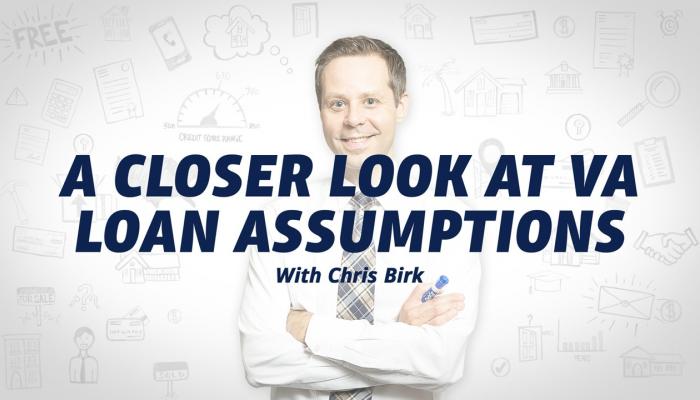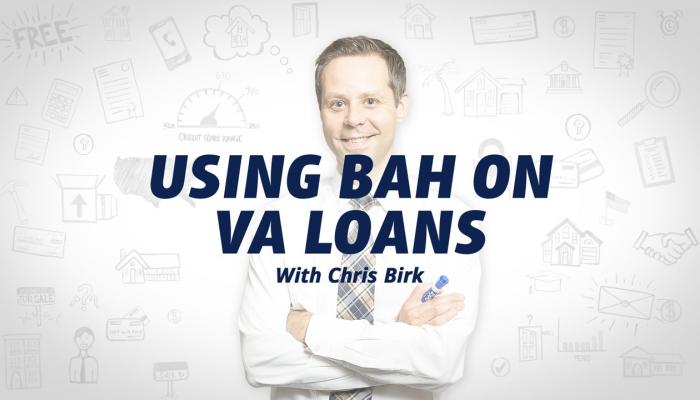VA loan applicants come from all kinds of different places in life. Some are soldiers deployed overseas, defending our freedoms while also hoping to claim a piece of the American dream they're fighting to protect. Others are veterans decades removed from military service. Some are even surviving spouses of those killed in the line of duty or of a service-connected disability.
They can also come from very different places financially. Some prospective borrowers have great credit and a solid chunk of assets. Others have experienced a foreclosure or a bankruptcy and are unsure of whether they can use the VA home loan program, which has helped more than 20 million veterans since 1944.
So what makes you a great candidate for a VA loan? It's an important question to consider when the time comes for loan prequalification and preapproval. This isn't exactly like trying to get into Harvard. You won't have to write any essays or embellish your resume. But lenders are going to take a long, hard look at your financial situation before extending an invitation to the world of homeownership.
Here's a look at five signs you're in a great position to land a VA loan:
Your Credit Score is at Least 620
True, the VA doesn't actually have a credit score requirement to participate in the program. But the VA doesn't actually make loans; it basically insures them. VA-approved lenders are the ones lending you money, and they can impose requirements beyond what the VA wants to see. One of the most significant ones is a qualifying credit score, which will vary from lender to lender depending on your unique situation.
Right now some VA lenders are looking for borrowers with a credit score of at least 620. That's not an exceptionally high score. In fact, it's considered only a "Fair" credit score, which is two steps below "Excellent." You may need a higher score if you're seeking a refinance loan or if you've had a recent bankruptcy or foreclosure. It's also important to note that a co-borrower (that would be a spouse or another veteran in the case of VA loans) also needs a qualifying credit score.
At Veterans United, our minimum credit score requirement is 620, but borrowers below that credit threshold can check out the Lighthouse Program at Veterans United Home Loans. Our Lighthouse specialists work with veterans and their families for free to develop a plan to repair their credit and get on the road to loan prequalification. You can reach a Lighthouse specialist at 888-392-7421.
You Have Steady Employment
Do you need a job to get a VA loan? Technically, no. Retirees do it all the time. But they also tend to have sources of income beyond a paycheck. For most veterans who aren't quite ready for retirement, you're going to have to show lenders you have acceptable sources of stable, reliable income that's likely to continue. In general, the gold standard is two years of steady employment at the same job.
That's not always possible, especially for military members preparing to separate and join the civilian workforce. It's possible to be on the job for less than two years and still satisfy a lender, although you'll typically need a good letter of explanation (LOX).
Self-employed veterans may struggle to obtain home financing without two years of business tax returns. Lenders can be wary of self-employment income because it's so subject to fluctuations depending on the nature of your business.
» CALCULATE: Calculate your VA Loan savings
You Have a Good Balance of Debt to Income
Lenders are going to look at your debts as well as your income and calculate your monthly debt-to-income (DTI) ratio. This looks at your major revolving expenses like a mortgage payment, car payments and student loan payment and divides that monthly outlay by your gross monthly income. Generally, the VA wants to see a DTI ratio of 41 percent or less, which is a higher standard than what you'll find on conventional and FHA financing. But it's possible to have a ratio greater than that and still obtain a VA loan.
In order to do that, you would need to meet additional requirements regarding a unique VA standard called residual income, which is basically how much money you have left over each month after those major expenses for normal household needs.
You also can't be in default or delinquent on any federally assisted loans such as student loans. Getting these debts repaid or at least developing a satisfactory repayment agreement will need to be your first step.
No Recent Bankruptcies or Foreclosures
Experiencing a bankruptcy or foreclosure doesn't exclude you from ever using your VA home loan benefits. But you may have to wait a bit or see your purchasing power diminished. You'll generally need to wait at least two years from the date of your bankruptcy discharge to pursue a VA-backed mortgage. It's the same for a foreclosure, a short sale or a deed-in-lieu of foreclosure. These events will exact a toll on your credit score, and prospective borrowers often need to spend those two years working to repair their credit.
Losing a VA mortgage to foreclosure doesn't mean you automatically lose your benefits. It's often more a question of how much VA loan entitlement you have left, since some is likely lost to that foreclosed property. Qualified borrowers can use what's called second-tier or secondary entitlement to purchase again using the program.
Consumers who file for Chapter 13 bankruptcy protection can be eligible after 12 months of on-time payments, but it's often tough to find a lender willing to go any earlier than the two-year mark.
You've Got Enough Cash for a Few Up-Front Costs
VA loans come with no down payment, which is an incredible benefit in the current housing market. Ninety percent of VA buyers purchase without having to put money down. But there are some costs you'll likely need to front, although you're likely to get some if not all of them back. One of those is earnest money, which is like a good faith deposit you make with a home seller. Earnest money can range anywhere from a couple hundred dollars to a couple thousand depending on the purchase price.
Another up-front cost is the fee for an appraisal, which will determine the value of the property and whether it meets the VA's Minimum Property Requirements. Conducted by independent VA appraisers, these typically range from $350 to $500 depending on where you live. You'll also want to spend money on a home inspection, which will set you back about $400. These are different from appraisals and much more exhaustive. A home inspection isn't mandatory for the loan to close, but you should pretend it is.
To learn more, check out our in-depth guide on VA loan fees and costs.
Related Posts
-
 VA Loan Assumption: Breaking Down How VA Assumptions WorkAssuming another's VA loan is an intriguing benefit with VA loans. Here we take a look at what an assumption is, the process and who can assume a VA loan.
VA Loan Assumption: Breaking Down How VA Assumptions WorkAssuming another's VA loan is an intriguing benefit with VA loans. Here we take a look at what an assumption is, the process and who can assume a VA loan. -
 Using Basic Allowance for Housing (BAH) on VA LoansAn incredibly powerful benefit of the VA home loan is military members' ability to use their Basic Allowance for Housing (BAH) towards their mortgage payments. BAH rates depend on several different factors, so it's crucial to verify your amount with the DOD.
Using Basic Allowance for Housing (BAH) on VA LoansAn incredibly powerful benefit of the VA home loan is military members' ability to use their Basic Allowance for Housing (BAH) towards their mortgage payments. BAH rates depend on several different factors, so it's crucial to verify your amount with the DOD.


